Dog Eye Photograph by Laurie OKeefe

Pet Eye Disease, Dog Eye Anatomy And Structure Guide Safarivet
Considering the physiology of the dog eye discussed above, and the dim light conditions to which it is adapted, dogs may be more sensitive to light at the expense of being able to discriminate smaller details.. Miller's Anatomy of the Dog: Elsevier Health Sciences. Feng, L. C., Chouinard, P. A., Howell, T. J., & Bennett, P. C. (2016). Why do.
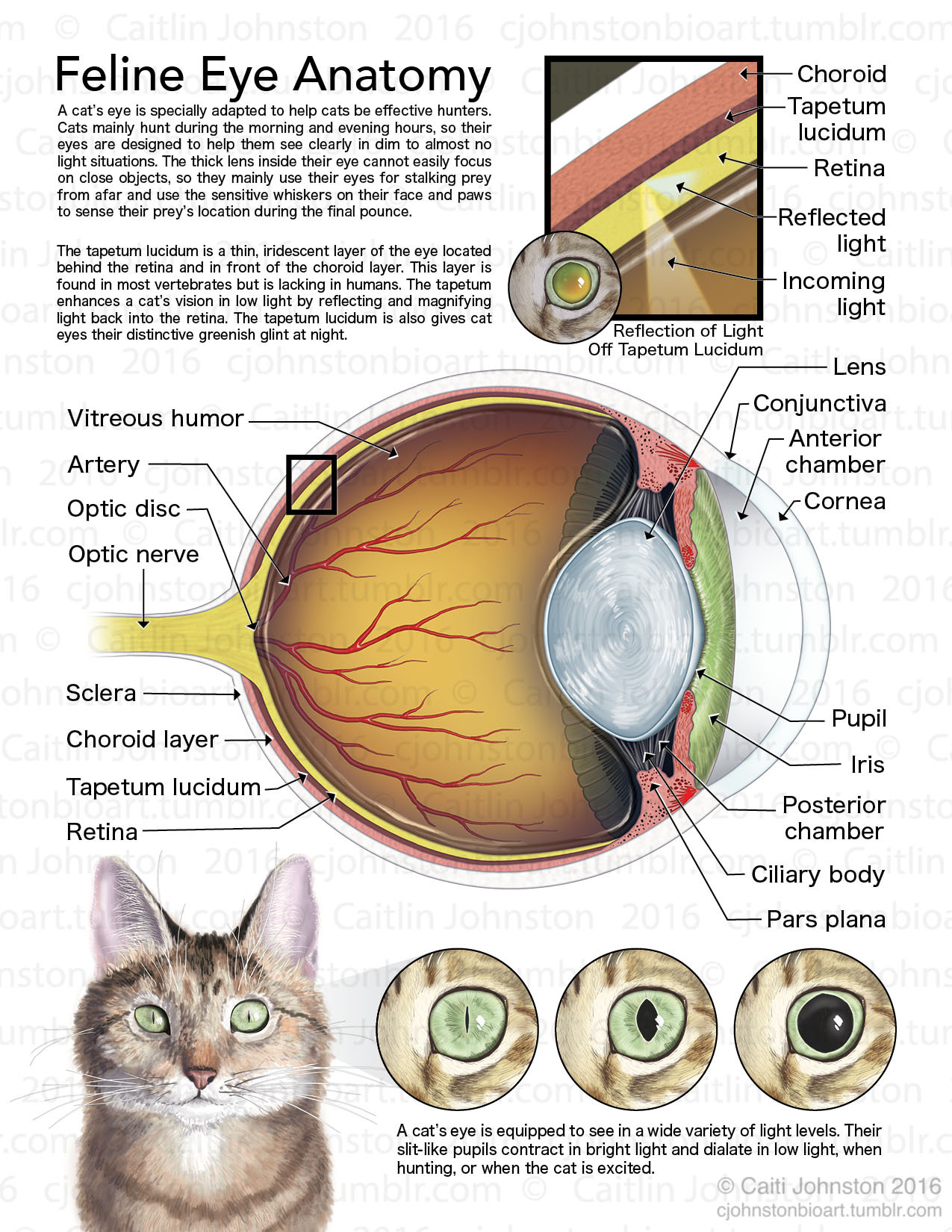
Scientific Illustration cjohnstonbioart Feline Eye Anatomy (2016)
Dog Eye Anatomy " Dog Eye Anatomy is a reflection of the eye as a complicated organ, containing many parts. These functional parts, i.e. sclera, conjunctiva, cornea, iris, pupil, lens, retina, lacrimal gland etc. are contained in a bony socket called a "orbit".

Why are my dog's eyes goopy? — VAH
The act of "seeing" is a complex process that depends on (1) light from the outside world falling onto the eye, (2) the eye efficiently transmitting and properly focusing the images of these objects on the retina, (3) the retina detecting these light rays, (4) transmission of this information via the visual pathways to the brain, and (5) the bra.

lacrimal caruncle Google 검색 Eye anatomy, Dog eyes, Cherry eye in dogs
Understanding Dog Eye Anatomy Dogs Zoology · Follow 2 min read · Aug 1 The fascinating world of canine eye anatomy must be explored as we set out on our adventure to preserve the vision of.
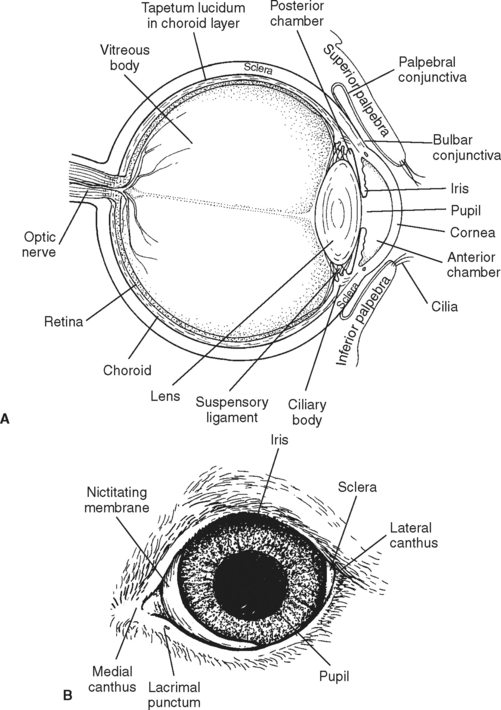
Diseases of the Eye Veterian Key
Dog Vision: Understanding Canine Eye Anatomy Dogs' eyes are structurally very similar to human eyes. The colored part is the iris, which surrounds the dark round pupil and controls how much light passes through that opening.
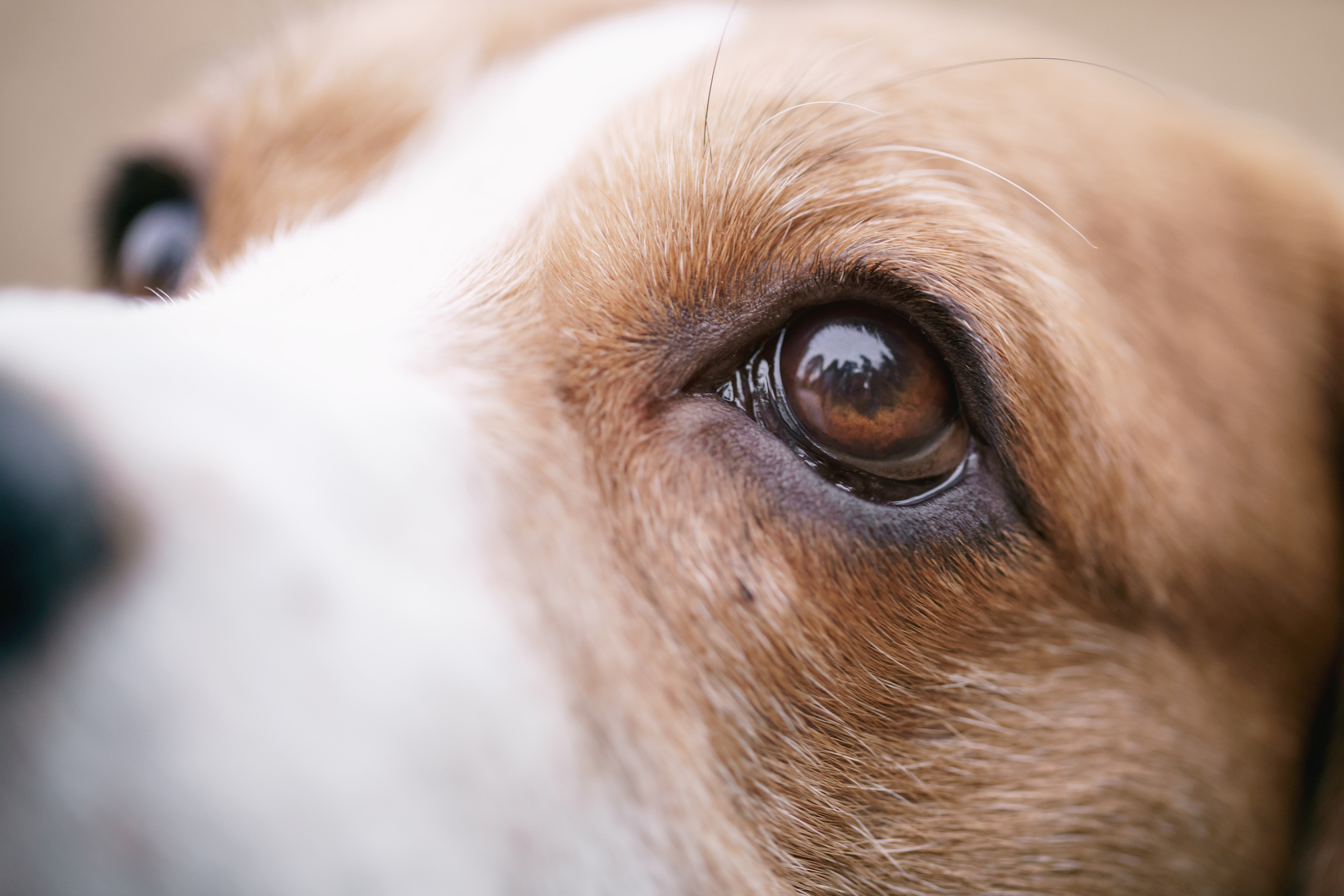
All About Your Dog's Eyes
What Is the General Structure of the Canine Eye? The eye is formed by three concentric (circular) tunics or layers of tissue. These are the outer fibrous tunic, the middle vascular tunic and the inner nervous tunic.

What Is Cherry Eye In Dogs? CohaiTungChi Tech
The anatomy of a dog's eye is very similar to that of a human's, though vision differs greatly. Cornea: A thin, smooth, transparent layer at the front of the eye. Trauma, ulceration, and irritating chemicals can lead to changes in the clarity of the cornea. Sclera: The "whites of the eyes."

Dog eye anatomy explained Brookfield Animal Hospital
Let's take a look at the anatomy of a dogs eye and how a dog's eyesight compares to ours—from seeing colors to side vision and seeing in the dark. Dog Eye Anatomy. The anatomy of a dog's eye is very similar to that of a human eye. Dogs have an upper and lower eyelid, the same as people. There are many other similarities, including:
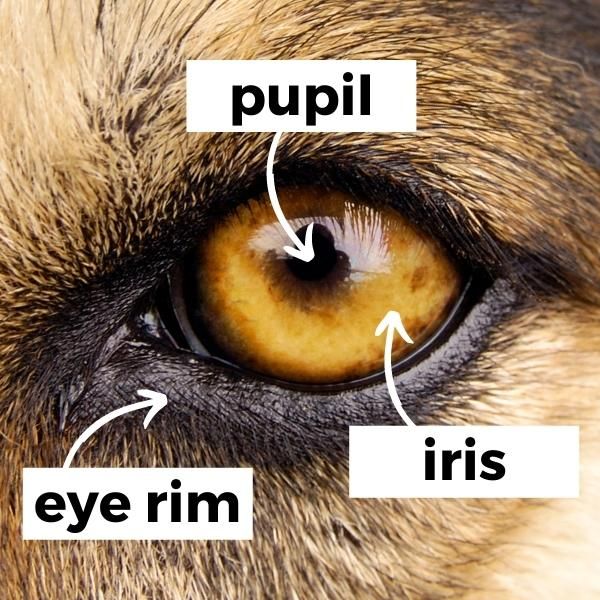
Dog Eye Colors Coats and Colors
Dog eye anatomy Dogs don't have a mere two eyelids—they have three. While your dog may blink with two eyelids, just like we do, they also have a third lid, called a nictitating membrane or a haw, which moves horizontally across the eye from the inside corner.
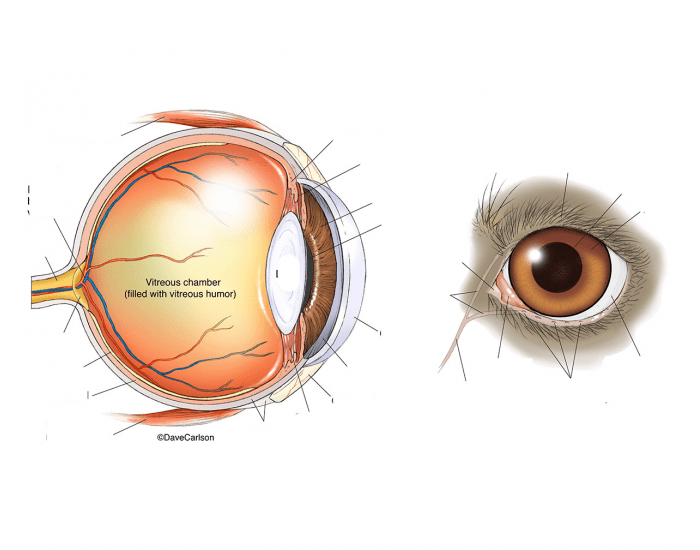
Dog eye anatomy Quiz
When considering the anatomy of the eye, it is important to first consider the orbit as a whole.. In the dog, the upper eyelid contains >2 rows of cilia, whereas the cat does not have any. Instead the first row of hairs on the skin are adapted for the same purpose. There are two types of gland associated with the cilia; Moll (which are.

How a unique facial muscle makes those 'puppy dog eyes' irresistible to humans
The eyes of animals, including dogs' eyes , function much like yours. Animals also develop many of the same eye problems that people can have, including cataracts, glaucoma, and other problems. It is important for your dog to receive good eye care to protect its sight and allow it to interact comfortably with its environment.
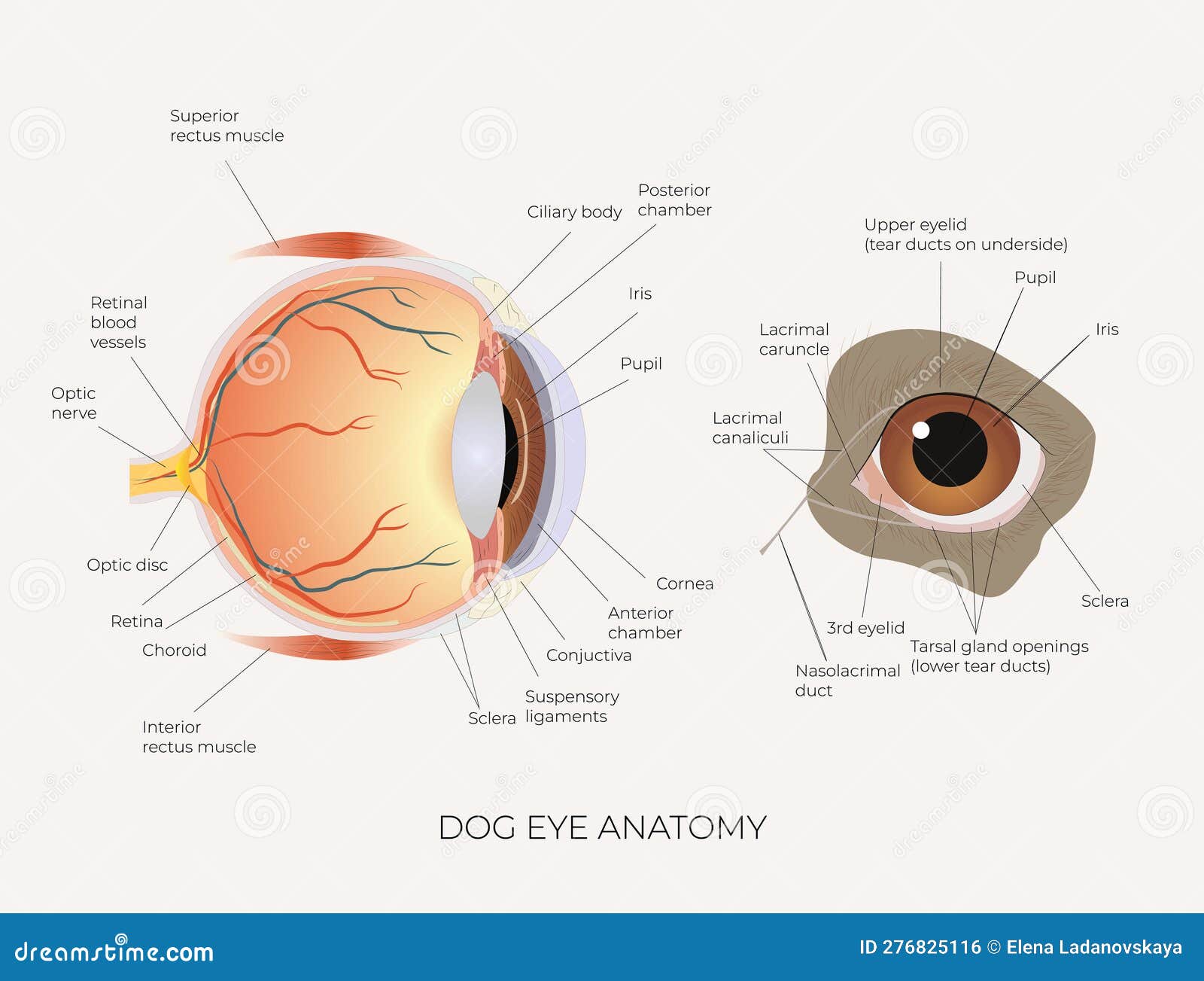
Dog Eye Anatomy Science Education Poster Stock Vector Illustration of medicine, zoology 276825116
The dog eye anatomy includes eyeball, orbit, eyelid, and lacrimal apparatus. This article will help you to know the details of these structures from the dog eye with labeled diagrams. Quick overview: The eyeball of a dog eye is located in the orbital cavity and consists of 3 tunics - fibrous, vascular, and nervous.
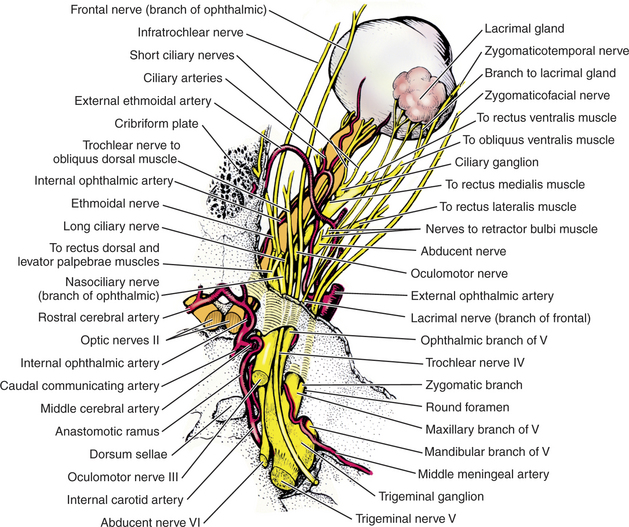
Dog Eyelid Anatomy
The eye ( organum visus) (Fig. 21-1) develops as a neuroectodermal outgrowth of the embryonic prosencephalon that contacts surface ectoderm and is enveloped by induced mesodermal and neural crest mesenchyme. The definitive eye and its adnexa are contained within an orbit that is only partly bony.

Pin by Deborah on Painting Dog portraits painting, Animal paintings, Animal drawings
General Anatomy. Dogs generally have the same anatomical structure as humans [2] Dogs have a third eyelid, called the nictitating membrane, which further protects the eye, spreads tearfilm over the cornea, and is involved in tear production. [2] Dogs have a tapetum lucidum behind the retina, which is highly reflective, and increases night vision.

Dogs Eye Anatomy Everything You Need To Know About Them Zigzag
A T-shaped cartilage that forms a firm connective tissue A tear gland held in place by the T-shaped cartilage A dog's third eyelid extends across the eye to: Protect the eyes from scratches, especially if the dog is walking or running through brush or somewhere the eye may get scratched Keep the eyes moist by spreading tears across the eyeball.
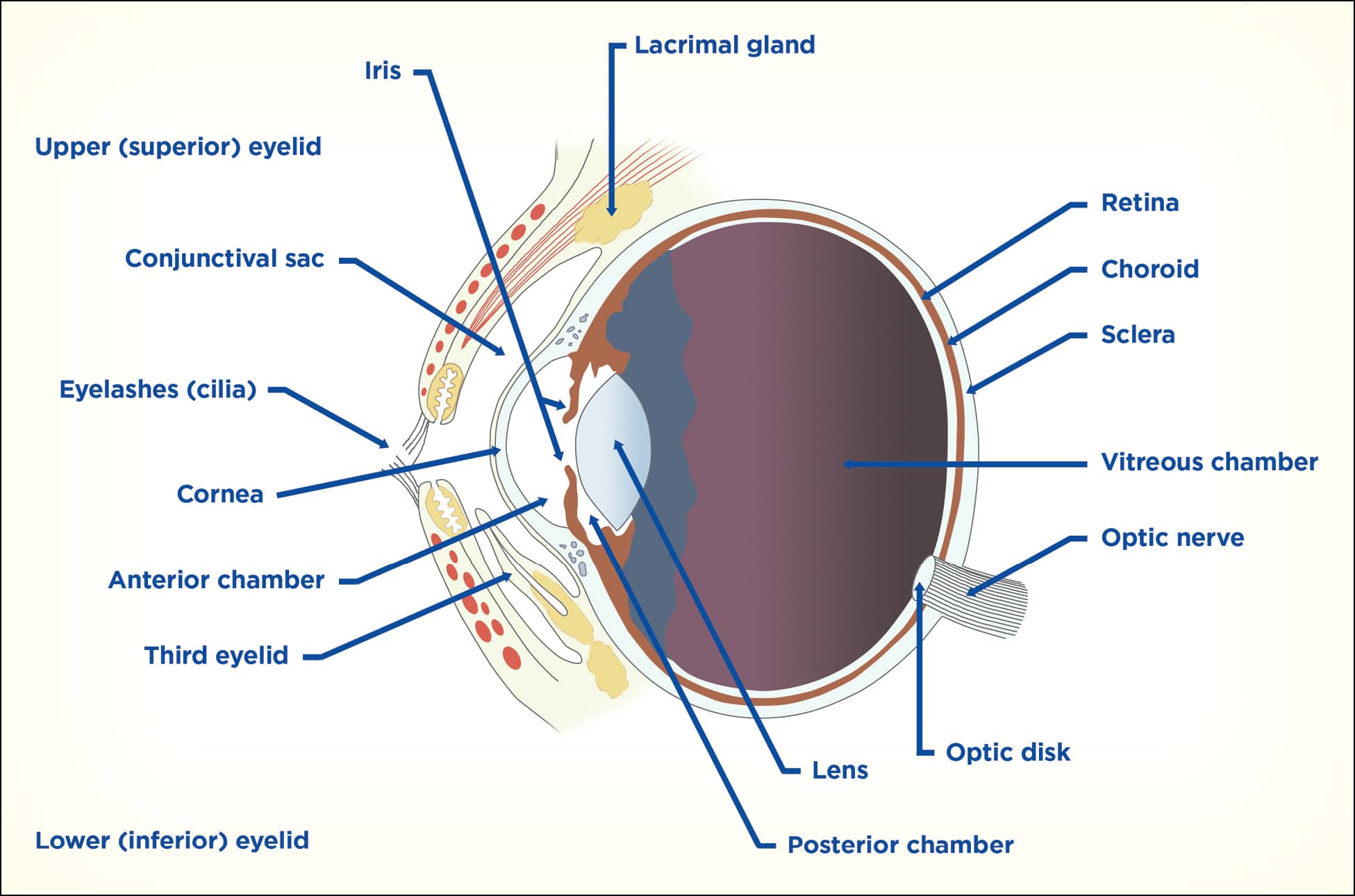
Canine Uveitis and the Veterinary Technician Today's Veterinary Nurse
The anatomy of dogs' and cat's eyes work by adjusting to different light conditions essential for hunting or tracking prey. Important Structures of the Eye The orbit is the bony cavity or socket which holds the eyeball as well as muscles, nerves, blood vessels, and structures that produce and drain tears.